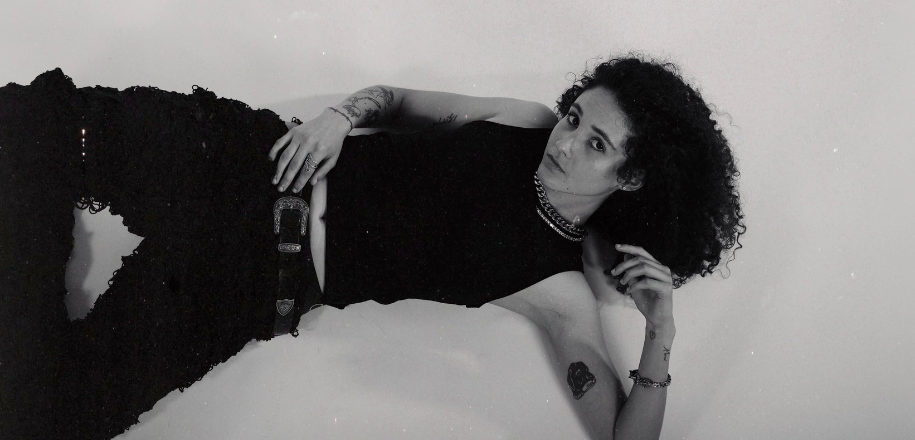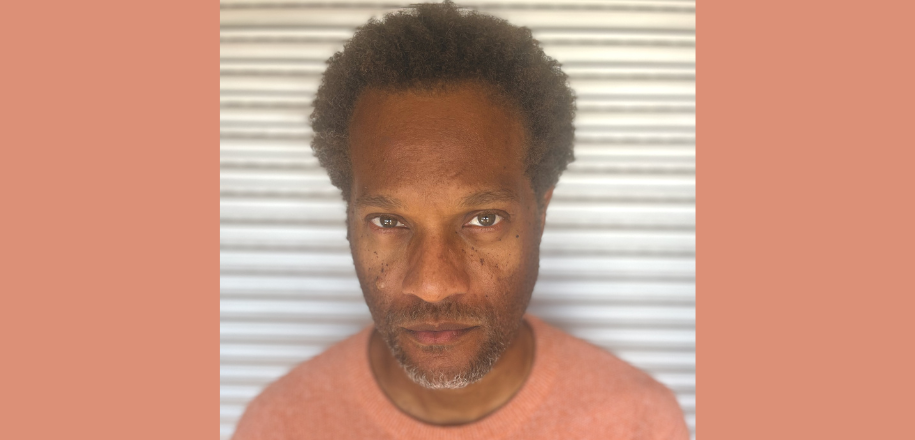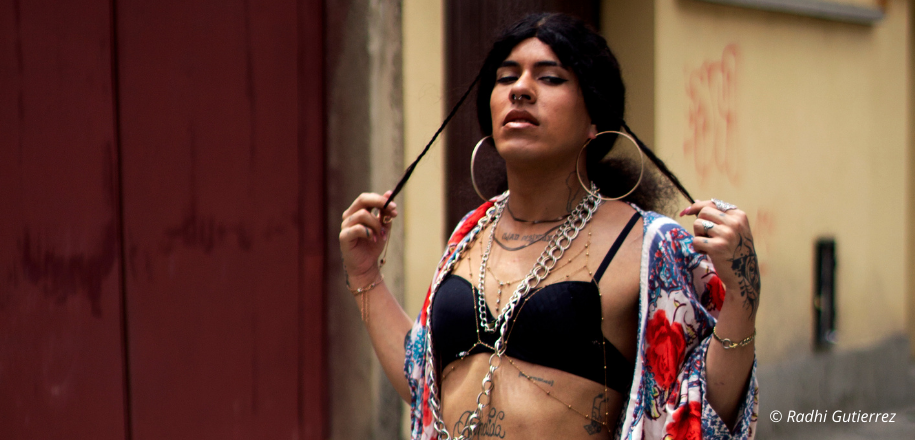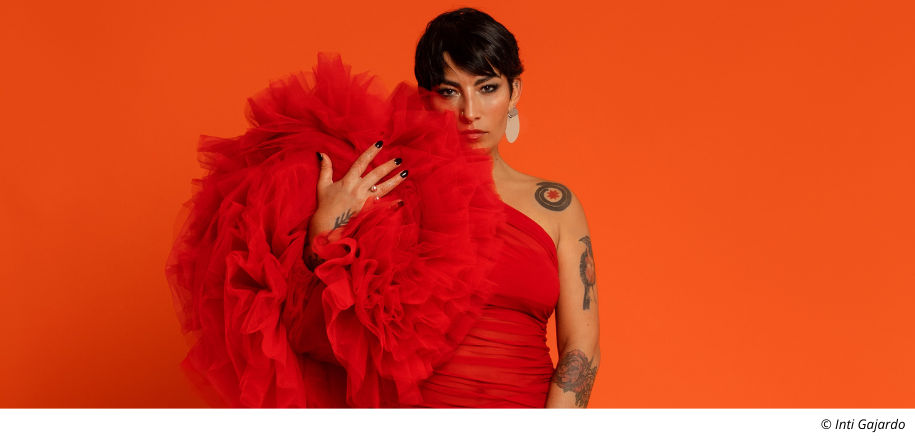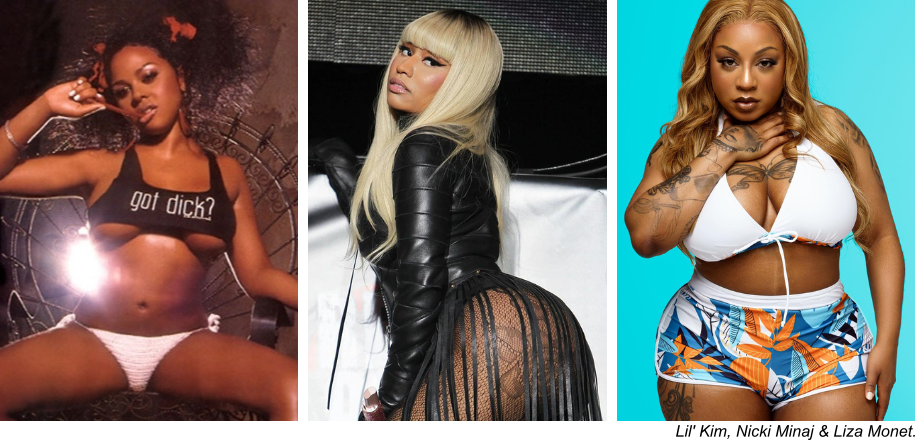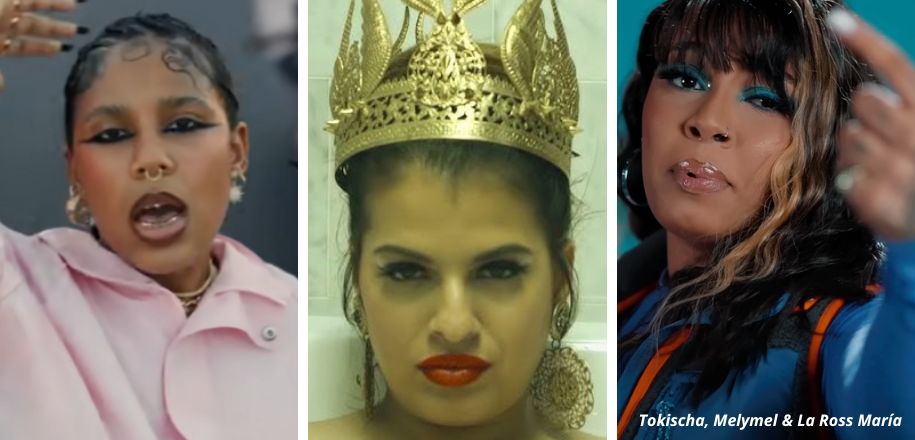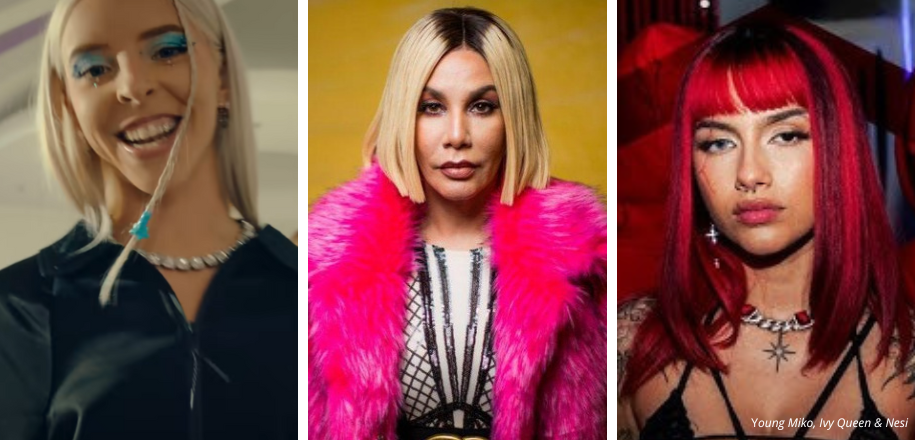Born and raised in Casablanca to an American mother and Moroccan father, Salem Aya is now based in New York. The rapper told us about her queerness, her multicultural background, her passion for writing and metal and her upcoming projects.
Do you remember how and when were you introduced to hip hop for the first time?
I was always a bit rebellious as a child, so anything that was forbidden or that I was explicitly told to avoid was very appealing to me. My mother was against any profanity in the music I listened to, so I would get my dad to buy me bootleg hip hop records from the corner store and listen to them in secret in my room.
I was quite lonely as a child, struggling with family and identity issues, and it became a safe space for me. It was one of the only ways I could find peace and recenter myself. I remember one of the first CDs I listened to was 50 Cent’s “Get Rich Or Die Tryin’”. So, I suppose that’s how I was introduced.
How and when did you start rapping?
I’ve always been into both poetry and music alike. Writing has always been a passion of mine, in every sense, but the more that I got into the genre of hip hop, the more it influenced how I chose to express myself.
I struggled with depression throughout my childhood and adolescence and writing definitely became a positive outlet to work through my emotions and make sense of them.
There wasn’t and still isn’t a very positive attitude surrounding the subject of mental health in Morocco, so it was on me to figure out ways to keep busy and interrupt the dark thoughts I was having.
That being said, I’m so happy to see Moroccan youth today speaking up and working towards the de-stigmatization of mental health discussions.
You also play guitar. Are you self-taught or did you receive any training or musical education?
I’m self-taught! Music (much like math) was one of those subjects I never got in school. I was great at everything else, but I don’t know what it is about the two, that is just so difficult for me to grasp in an academic context. I taught myself through a combination of trying to learn chords by ear, watching live concerts and YouTube videos. To this day, I can play any chord but still don’t know the names of them.
You were influenced by metal music. What would you say are the similarities between hip hop and metal?
I would say there’s an element of rebellion and nonconformism in both genres that I relate to. I love how unapologetic they are and that’s something I respect a great deal. However, within both metal and hip hop you can find a plethora of subgenres. For example, I love horrorcore rap, and lyrically there are so many parallels that can be drawn with goth metal.
Also, I love aggressive music across the board, but not all metal or hip hop is aggressive. My taste and influence in music is so vast and conflicting, it would be impossible to go through it. By way of illustration, I also listen to a lot of Moroccan folk music that I find extremely inspiring for different reasons.
You were born and raised in Casablanca to an American mother and Moroccan father, then lived in Miami and are now based in New York. How did this multicultural background feed you as an artist?
I try to incorporate elements of my identity into every song, even if it’s a minor detail. So, in turn, I find inspiration in the multifaceted aspects of what make me who I am.
There are some aspects of my cultural background that clash and some that coexist, so I use my music to try and find a way to reconcile or harmonize the two.
I also feel that where I’m based plays a massive role in the music I put out. Living in different cities and countries has been the most incredible learning experience. I love to travel and learn about different cultures and customs. I’m very sensitive to my environment and I’m influenced by everything around me, so I love discovering the beautiful little things wherever I am.
You just released the track and video “Qandïsha” with MC Lemhllwess. Can you explain what the figure of Qandïsha is and what the track is about?
The song itself isn’t literally about the mythological creature Aicha Qandïsha. I’ve always been into fashion, so I decided to name the song Qandïsha because to the bar referencing Maison Margiela’s tabi shoes (which are featured in the video as a subtle easter egg).
Aicha Qandïsha herself is a femme fatale archetype or a jinn-like succubus in a sense. There are many different explanations as to how and when the legend came about, ranging from the traditional folklore of a cloven-hooved beauty that lures men to their fate, to claims of her being an actual person during the Portuguese colonial period in Morocco that sought vengeance over the invading soldiers.
The track itself is just aggressive, energetic, and boastful in nature. I was honestly just having fun in the studio and the “Qandïsha” bar came to mind and kind of stuck. I decided to roll with it and came up with a whole idea for the visual. Lemhllwess had reached out wanting to collaborate with me on a song, so I sent him my verse and he based his from mine, and thus Qandïsha was born.
As mentioned before, I’m very into horrorcore and dark themes, so it was all very natural to me, combining this element of North African folklore into something more personalized.
How do you usually write? Do you have any favorite topics or routines?
To be honest, a lot of my writing is spontaneous. I go through periods where I find inspiration in every corner and then there are periods where I find it extremely difficult to write anything at all.
I’ve written some songs in 15 minutes while others have taken 6 months to complete.
I have always been very transparent and vocal about my queerness, so I guess that’s a common theme throughout my songs. I would also say dark themes are pretty consistent too, perhaps in an attempt to turn my struggles into something positive and beautiful.
Do you identify as queer? If so, how would you define your own queerness/feminism?
I do identify as queer. I’ve always known I was different from my peers since a young age. I think I first recognized my queerness as early as 3 years old. However, I didn’t come out until I was about 10 or 11. Growing up, I never had a safe space to express my queerness or anyone to relate to, so I isolated myself for many years.
To be honest, I wouldn’t know how to define it. It’s just who I am and who I’ve always been. It’s what comes natural to me, and I wouldn’t trade it for the world. It’s taken me a long time to reconcile that within myself, so perhaps in a sense I would define my queerness as confidence and self-love. At least that’s what my own queerness means to me.
I spent so many years hiding such an important part of who I was until I decided to find a way to celebrate my individuality. And that definitely ties into my own feminism, going against the societal norms of what is expected of women in my culture, since I am, unapologetically, a queer woman.
Are you connected to the Moroccan hip hop scene? If so, what are the fe*male and queer rap scenes like over there?
I started connecting with the Moroccan hip hop scene during the height of the pandemic, which is when I first started releasing music. I was living in Miami at the time and wanted to connect with other Moroccan creatives. I also really love Moroccan hip hop. There are some incredible artists I got the opportunity to discover that I’ve had on repeat ever since.
I love my country and it warms my heart to see my generation supporting positive change and expression. I love Khtek and Snowflake, who are 2 female rappers in Morocco. They are incredibly talented, and I’m so inspired by who they are as individuals just as much as they are artists.
The scene is still very much male-dominated, but I can see that this dynamic is changing and I’m really happy to see more and more female and LGBTQ+ artists gaining the confidence to take up space and share their work.
What are your upcoming projects?
I’m in the process of working on a few more singles, some in collaboration with other artists and some solo. I want to experiment more with languages as well, and release more songs in Darija, which is the Moroccan dialect.
On a larger scale, I’d like to release an EP within the next year that includes a few of the singles I’ve already released in addition to the projects I’m currently working on. I plan on releasing more visuals to accompany my music, so I’m very much looking forward to that as well!
What do you think about Madame Rap? What should be changed or improved?
I think Madame Rap is an incredible organization. It’s a great way to discover female and LGBTQ+ artists in hip hop. I’ve never come across anything like it and was thrilled when they reached out to me. I love everything it stands for and the pedestal it puts the underrepresented on.
It gives the spotlight to the underdog and the marginalized, and for that Madame Rap has earned my respect. It’s an organization with a purpose and only love behind its intention, so all I can say is keep doing what you’re doing!

